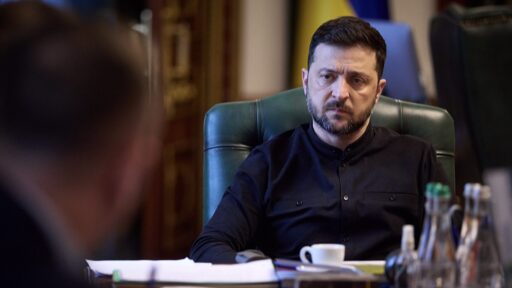European leaders spent a restless weekend reacting to a draft peace plan for Ukraine backed by US President Donald Trump. The original 28-point document includes provisions that both EU governments and Prime Minister Volodymyr Zelenskyy’s administration condemned as “maximalist,” insisting the proposal concedes too much to Russia: long-requested assurances that Ukraine will not join NATO, recognition of territories currently held by Russian forces, and a cap on Ukraine’s military at 600,000 troops – still making it one of the largest in the region.
Mainstream commentators quickly proposed that accepting such terms would amount to Ukraine’s capitulation. Yet other analysts noted that European leaders’ concerns appear less about Ukraine’s future and more about shielding themselves from fallout. Ukrainian researcher Volodymyr Ishchenko suggested in a social media post that the EU’s real fear is that Russia might actually accept the deal – and that European governments may therefore try to make it unacceptable to Moscow. “It’s especially telling that this fear persists even as Russia enjoys the upper hand and can prolong the war to pursue its perceived ‘maximalist’ goals, while Ukraine descends even deeper into military, economic, political, social, and international crises,” he wrote.
Read more: Tanks don’t fill lunchboxes
This new episode of Europe’s resistance to a minimal amount of diplomacy comes at a time when most Ukrainians support a negotiated outcome to the conflict. A Gallup poll from July 2025 showed nearly 70% of respondents favoring a negotiated settlement rather than “fighting until victory,” a near-complete reversal of opinions in 2022.
European leaders have obviously not attuned themselves to the shift in public sentiment. After consultations between European and Ukrainian officials over the weekend, an alternative version of the plan removed provisions on neutrality and NATO non-expansion, and raised the troop cap to 800,000. Over the past few days, European heads of state repeatedly dismissed any peace proposal that does not amount to Russia’s full surrender, with some insisting that “Putin should be forced to the negotiating table” – apparently forgetting that it was European governments that stalled negotiations on multiple occasions.
Rather unsurprisingly, Russian authorities said the amended proposal is not acceptable.
The European counter-proposal also proposes lowered expectations about the bloc’s own commitments to Ukraine. While the original draft referenced billions of euros in support for recovery and rebuilding coming from European allies – mirroring the US administration’s push for the region to agree on more military expenditure – the rewritten version is less enthusiastic about the topic. Instead, it suggests that Ukraine’s reconstruction and stabilization should be paid for through what they refer to as reparations, specifically Russia’s frozen assets. European enthusiasm for the concept of reparations has been noticeably absent in other conflicts they have supported, including Israel’s genocide in Gaza.
Read more: “Inalienable right of Africans and people of African descent to full reparations”, asserts Accra Declaration
These moves reinforce what has already been apparent: the EU and Britain are obstructing efforts toward a ceasefire not because they believe Ukraine can prevail militarily, but because they fear the political and financial consequences of acknowledging that their approach to the conflict has failed, causing thousands of deaths.
The fact that some interaction with last week’s plan has happened represents some space for hope compared to previous attempts. Whether this will translate into concrete results, however, remains uncertain, especially given the level of European interference.
The post Europe remains determined to keep Ukraine war going appeared first on Peoples Dispatch.
From Peoples Dispatch via this RSS feed
Fuck you.



